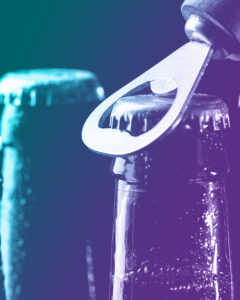How to Stop Alcohol Cravings
You have tried time and time again, but alcohol seems always to find its way back to you. It didn’t matter that you had lost relationships, jobs, and your license from a recent DUI. You found solace in alcohol. The world around you seemed bleak, and you didn’t know where to turn.

It hits you one day that it is time to do something different. You decide to go to an AA meeting in search of hope. The room seems cheerful, and everyone welcomes you and offers you coffee. Listening to the stories around you, you find many of them have experiences similar to your own. You leave with your silver token and a few phone numbers, ready to begin your new life.
You awake the next morning feeling refreshed, ready to take on the day. As you begin your walk to work, you pass the bars, liquor store, and gas station you would frequent to get alcohol.
You feel good, you can do this. As you get into work, immediately your boss is on your case about a report that has been mislabelled. You frantically begin your day, stress building at each new obstacle thrown your way. Your mind begins to race, and the familiar cravings begin to set in. It sure would be nice to calm yourself with a drink after work. How will you control these cravings?
In 2022, 25% of Sarasota County residents reported drinking excessively. At Clean Recovery Centers, we understand alcohol is readily available, and quitting may seem impossible. Our unique, three-phase approach to addiction treatment focuses on both physical and mental health. Our team can diagnose and treat mental health concerns during any phase of treatment. However, cravings can still pop up once treatment is complete. So, want to learn how to stop alcohol cravings? Let’s explore further.
Understanding Alcohol Cravings
If you have an alcohol use disorder and you spend some time without alcohol for an extended time, you will experience cravings. However, cravings can vary from person to person.
Why do cravings happen, though?
Deep Dive Into the Science of Alcohol Cravings
One way to explain why alcohol cravings exist is through classical conditioning. You might have developed alcohol-related cues, such as the sight of a local bar, due to that object’s association with drinking alcohol. Eventually, the sight of a local bar might result in your brain releasing neurotransmitters like it would if you were drinking alcohol. When you do not satisfy those responses, you may experience unpleasant effects.
However, another explanation for alcohol cravings may come from cognitive models that explain cravings as a combination of your expectations of receiving pleasure from alcohol as well as your belief that alcohol helps you cope.
The reward center of the brain activates in the presence of alcohol. The reward center interacts with the part of your brain that controls emotions and the part that controls your sensory input. Our brains like to work on patterns, so when situations associated with alcohol are remembered or experienced, it might result in these areas of stimulation of the brain, resulting in a desire to drink alcohol. This association is known as a “trigger.”
Recognizing Your Alcohol-Craving Triggers
Several factors can result in a “trigger” to encourage someone to want to drink alcohol. Some of the most common risk factors of alcoholism might include:
- The presence of other people – If you always drink alcohol with other people, such as friends, co-workers, or family, you might feel the need to drink around them while in recovery. On the other hand, if you always drink while alone, you might be more likely to feel like you need to have a drink of alcohol during alone time.
- The day of the week – Suppose you always went out on Friday nights and drank alcohol. Friday nights could become a trigger because your brain and body will feel like they need to drink alcohol on Fridays.
- Time of day – Like the day of the week, the time of the day can also be a trigger. Someone who drinks alcohol every night is going to be more likely to feel like they have cravings for alcohol at night than they would during another time of the day.
- Places or situations – Suppose you pass by the local bar and feel the need to drink alcohol. The places and actions that had alcohol associated with it in the past may result in you wanting to drink it when those places and actions occur.
- Mood – Your emotions can play a significant role in your desire to drink alcohol, especially if alcohol has been a way to cope in the past. When you feel bored or frustrated, you may have in the past reached for alcohol. So, when you have decided to drink alcohol no longer, those emotions may make you more likely to feel cravings for alcohol.
- The type of alcohol – There was probably an alcoholic beverage you reached for more often than other types. If you see that beverage either in a commercial on TV or at a friend’s house, it may make you crave alcohol.
Understanding which triggers you have can be complex initially, but you will be able to recognize them with practice. Many people will keep a journal or diary of their triggers when they happen. They note each time they have a craving by including all details relevant to the craving, such as time of day, place, people you are around, emotions, and the details of what was going on when the craving occurred. As time passes, you may notice patterns that make up your triggers.
Maintaining Control Through Planning Ahead of Triggers
 Knowing your triggers can let you know when you need extra help or support ahead of time. It can be challenging to avoid your triggers altogether, as you may experience triggers outside your control. However, creating a plan of coping strategies can give you something to lean on when the cravings do come following a trigger. They can also help you avoid a trigger that is within your control. These coping strategies may include having an exit plan or having a trusted friend you can go to when triggers come. By planning, you can avoid a return to use. However, know that if you do return to use, it does not mean you have failed. All it means is that adjustments are necessary.
Knowing your triggers can let you know when you need extra help or support ahead of time. It can be challenging to avoid your triggers altogether, as you may experience triggers outside your control. However, creating a plan of coping strategies can give you something to lean on when the cravings do come following a trigger. They can also help you avoid a trigger that is within your control. These coping strategies may include having an exit plan or having a trusted friend you can go to when triggers come. By planning, you can avoid a return to use. However, know that if you do return to use, it does not mean you have failed. All it means is that adjustments are necessary.
Empowering Coping Strategies to Overcome Triggers
People can use several coping strategies to face triggers. These strategies will help you be better prepared when triggers show up. Below are a few of the most common coping strategies.
Keep a Busy Schedule
Stay busy. Do activities that you both enjoy doing and need to accomplish. Fill your day with tasks, goals, and activities that keep you busy. Especially on days when triggers are most likely to appear. If you have downtime where you are doing nothing, you may feel urges to drink alcohol as a way to fill that void in the day. However, if you are doing something, not only will it tire you out by the end of the day, but it will not allow you to think about drinking alcohol.
Weigh the Consequences
You can’t always avoid triggers, but considering the consequences of deciding to drink alcohol can help you resist the urge to consume alcohol. Consider what will happen if you drink alcohol vs not drink alcohol. Consider the following questions and apply them to each choice: How would you feel if you made this choice, and what would happen if you made it?
Mindfulness and Meditation
Mindfulness and meditation allow you to focus your attention on the experience you have in your present. When you have triggers, it might be challenging to concentrate on anything other than alcohol. However, focusing your attention on your current situation and acknowledging the thoughts and emotions you are experiencing can give back your control over your situation.
Building a Long-Term Defense Against Alcohol Cravings
The above techniques only help stop alcohol cravings at the moment when triggers arrive. However, you can achieve long-term success by participating in activities such as therapy and support groups while keeping cravings at bay. It won’t happen overnight, but eventually, you will notice the cravings become less and less.
Therapy and Counseling
One of the best ways to stop alcohol cravings in the long term is to attend alcoholism treatment. Treatment often includes therapy and counseling to help you develop coping skills and other valuable techniques for your recovery journey. These skills and techniques come from cognitive behavioral therapy (CBT) and dialectical behavior therapy (DBT). CBT helps change unhealthy thoughts into healthy thoughts, while DBT enables you to acknowledge your behaviors, emotions, and thoughts and balances them with positive change.
Support Groups
Support groups are also beneficial for people managing long-term alcohol cravings. During support groups, such as SMART Recovery or Alcoholics Anonymous (AA), you will not only experience more techniques for managing alcohol cravings, but a support system will also support and help you through those cravings. Support groups have people who are also undergoing alcohol use disorder recovery, so they know what cravings are like.
Alcohol Use Disorder Treatment Is Available in Sarasota County, FL
Deciding to seek treatment for an alcohol use disorder can often feel impossible. Perhaps you have tried to seek recovery in the past, but the cravings were more than you could handle. Rest assured in knowing they will most likely not be forever, and it is possible to recover from an alcohol use disorder. Alcohol use disorder treatment can help you recognize your triggers and give you the skills necessary for your long-term recovery.
At Clean Recovery Centers, we encourage our clients to get clean, live clean, and stay clean. Located in Tampa, FL, all our housing is certified through the Florida Association of Recovery Residences (FARR). If you have any questions or are ready to start treatment, don’t hesitate to contact us at 888-330-2532 today.
FAQs About Alcohol Cravings
How long do alcohol cravings last?
How long cravings last can vary from person to person. They are often intense in the early days of existence, but these urges will disappear. Some may only have cravings for a few weeks, months, or even a year. All timelines are standard and are not indicators that you cannot recover.
Can diet help with alcohol cravings?
What you eat can help with alcohol cravings. There have been reports that people who have lower sugar intake may experience less alcohol cravings.


